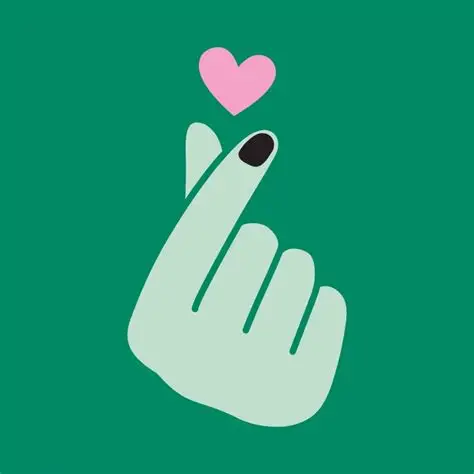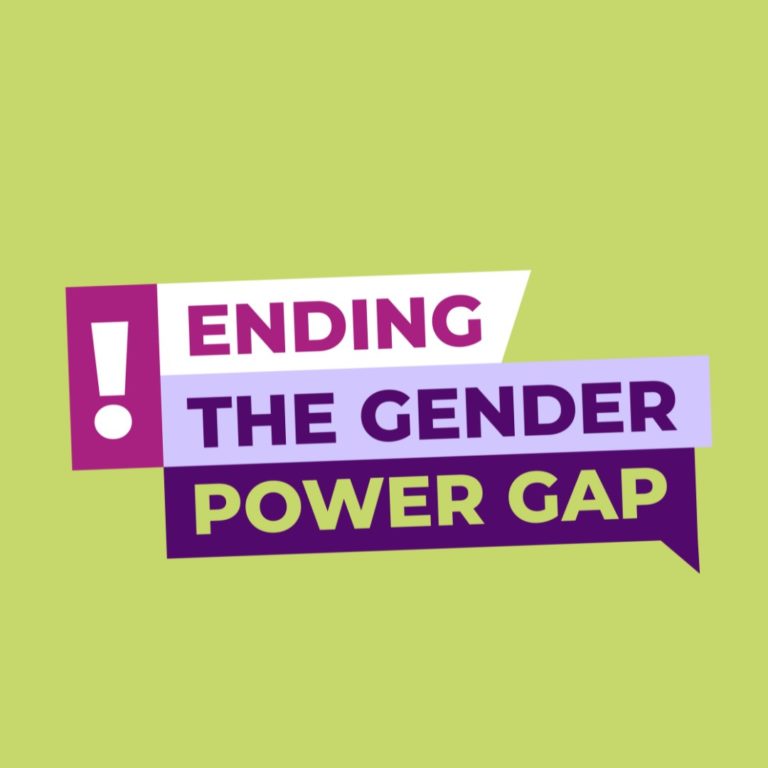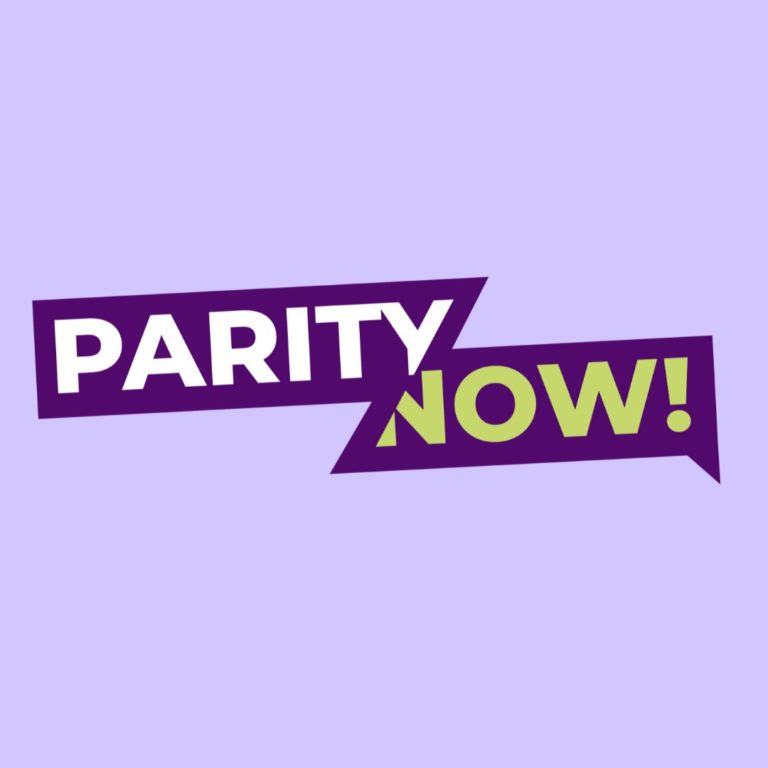A brief foreword: The European Women’s Lobby invited 30 feminists to Brussels for four days of strategic planning. This is my account of that event, which took place on Friday 8th – Monday 11th November 2019. ***** The mainstreaming of far-right politics across Europe has made this a difficult time for women and minorities; in particular, minoritised women. At times it feels as though no action – collective or individual – has the power to turn us from this dreadful course. After months of watching the UK blunder towards Brexit, making life ever more precarious for vulnerable people, I was feeling particularly hopeless. Then I saw that the European Women’s Lobby were inviting women to apply for a strategic planning session. Centred on youth engagement, the programme aimed to build intergenerational solidarity between women. Reading about it made me curious. And this reminder that the Women’s Lobby are paving the way towards a feminist Europe – however far away that vision might feel – planted a seed of optimism. So I applied. The summer I came to Brussels for Young Feminist Summer School was the summer Britain voted to leave the European Union. AGORA 2016 was a transformative experience. But since then, as the UK has stumbled towards Brexit, our political landscape has only grown more desperate. There is a very real possibility that Boris Johnson – a man who radiates anti-Blackness, Islamophobia, classism, homophobia, and sexism – is going to be elected Prime Minister. Britain’s left-wing parties have yet to find the consensus necessary to build a coalition. The socioeconomic situation is bleak. But change is possible. And when the EWL confirm my place on their strategic planning session, I find fresh resolve to bring it into being.
DAY 1
There are 30 of us – women from across Europe, united by a shared commitment to feminist politics. We travel to Brussels by plane and train, bus and tram. The EWL cover participants’ travel expenses and accommodation, which means that it isn’t only wealthy women who can take part in shaping their future. Decisions like this – conscious efforts to hear more than just the most powerful women’s voices – are a key part of feminist praxis. And, looking around the women gathered here, it is clear this approach has paid off. No two life stories are even close to being the same. Our group contains a diverse range of women. Jobs include everything from frontline service provision to singing opera. Among the organisations represented are the European Network of Migrant Women and the World Association of Girl Guides and Girl Scouts. It quickly becomes clear that the room holds a rich selection of feminist perspectives. Though many of us have had obscenely early starts, we each feed off the incredible energy in our group. Joanna Maycock, Secretary General of the EWL , welcomes us and outlines the aim of this meeting. The Women’s Lobby are nearing the end of their current 5-year strategic plan. It was put together in the wake of Trump being elected President of the United States, Britain voting to leave the EU, Jo Cox being assassinated, and bomb threats in Belgium – a time of crisis. They want us to help shape their next plan. And a key goal within that plan is to build long-term, meaningful engagement with young women – whose voices are often missing on the EWL secretariat and board. Founded in 1990, the EWL has 31 national coordination organisations in countries within the EU and Free Trade Association countries. As an umbrella organisation, the EWL represents over 2000 organisations across Europe. When Joanna mentions the EWL, she’s not just talking about an office in Brussels. It’s a massive, international network. And influencing their plans for the future is no small task. To break the ice, we each choose a card with a picture that represents us. This is the first of many ways the facilitators jog our imaginations. Mine is an image of a library – beside the bookshelves, there’s a window looking out onto rolling green hills. This card feels right; it captures my vocation as a writer, as well as a passion for books, and alludes to Scottish identity. Another woman chooses a picture of dominoes because it reminds her that everything is interconnected. Someone else’s card shows a flame in the shape of a woman, and another flame that has died out – this resonates deeply. My relationship with the feminist movement is defined by cycles of passionate engagement and profound burnout. There is real creativity in the responses, which our facilitators are quick to harness. Before beginning we share our vision of how we will conduct our discussions over each day, establishing basic principles of how to work together. We choose radical kindness and active listening, along with a decision to prioritise women who haven’t yet spoken in a conversation. Women always have the option to leave if and when we need space, no explanation needed. Along with our two facilitators, there is a team of three interpreters who translate between English and International Sign Language. To kick off, we start by building a feminist timeline. On it, we each place two post-it notes: the first time we realised women were discriminated against, and the first bit of feminist activism we ever did. Each post-it is like a tile in the mosaic of patriarchy and resistance. The judgements levelled against single mothers, the underrepresentation of women in politics, and the inadequacy of institutions’ responses to rape are all mentioned.
DAY 2
The second day starts with members and staff of the European Women’s Lobby outlining the EWL’s history and function. Gwendoline Lefebvre has been President of the EWL since 2018. She tells us that the EWL was born from a 1987 conference in London, calling on the European Commission to put pressure on institutions to meet and legislate around women’s rights. The EWL is a link that facilitates dialogue between citizens and decision makers. At the Women’s Lobby’s core is this vision: a society in which women and girls have our contributions recognised, rewarded, and celebrated. A world where we have freedom of choice, along with freedom from violence and exploitation. Mary Collins, now Senior Advocacy & Policy Coordinator, has been with the EWL since its fourth year. To her mind “legislation is not the end, it’s the beginning.” Mary is clear that feminist policy is ineffectual if it’s not intersectional, because “not all women are equal.” Between her fabulous crocheted dress and sound analysis of power structures, I find myself liking Mary. She wants to overthrow patriarchy by eradicating male violence against women & girls and transforming the economic model. At present unpaid care work is not acknowledged as part of the economy – which is ironic, because without it the economy would collapse. [*”Europe has brought forward a lot of pro-woman legislation in the last 40 years that would otherwise have been much later.” – Mary Collins*] To Mary, it’s not just about laws on paper but having the means to enforce them and enact for a cultural shift away from patriarchal values. But this is a difficult process – and the shrinking space of civil society makes it harder still. Increasingly, actions that bring about social change are expected to happen on a shoestring. And there’s always a presumption of women’s unpaid labour. Joanna Maycock, Secretary General, talks about her work trying to organise with underfunded women’s organisations over a range of issues, across different cultures and languages. She lists three main challenges currently faced by the European Women’s Lobby:- Taking a radical approach to ensuring diversity and inclusion in the EWL, building a space where every woman truly feels heard and represented.
- Challenging the defunding of the women’s sector, lack of resources, and attacks on human rights – the EWL wants to reverse these trends, strengthen membership, and increase their capacity to mobilise.
- Strengthening a shared collective identity across differences of ethnicity, cultural reference points, and nationality. The EWL are reflecting on what their ‘we’ looks like and how it should look in the future.


DAY 3
On Sunday we get down to business. I join the working group on interaction, communication, and movement-building. We talk about the differences between meaningful engagement and tokenism, ways of pairing older and younger women in dynamics more natural and less imbalanced than that of mentor and mentee, and how to encourage the recruitment of younger women. Sanja talks about the awkward position young lesbians can find ourselves in – isolated by homophobia within the feminist movement and male-centric attitudes within the LGBT community. It is a relief to hear her voice these truths. Those of us who have done AGORA feel strongly that Young Feminist Summer School should continue – both on a European level, and on a national level in members’ home countries. We consider this an opportunity to foster links between member organisations and younger feminists; a way of tapping into the political engagement of young women whilst giving them first-hand knowledge of ongoing projects. We also brainstorm ways for member organisations to improve awareness of the Women’s Lobby in their home countries, coming up with ideas on how to make more information about the EWL readily available to the public. Without the serendipity of Twitter, I’d never have found out about AGORA in time to apply – or learned about the European Women’s Lobby. My life and politics both would have been much the poorer without the incredible experiences of AGORA or Loud and United. More efficient communication would enable a wider range of women to connect with the Women’s Lobby and support their vital work.
DAY 4
Our final morning is bittersweet. We each go round in a circle and say one word to describe these four magical days. There’s a discussion about our recommendations for the EWL’s engagement with young women, which leads to interesting moments of reflection. Mary sees intergenerational feminism as more important than ever before in an era characterised by shrinking social spaces, the mainstreaming of fascism in Europe, and the rise of far-right politics. Sanja points out that she wouldn’t be in this room without having positive relationships with older feminists. After a coffee break, we give an evaluation of the whole workshop. The European Women’s Lobby team express their gratitude that we have all given our time, energy, and ideas to their strategic plan. But being here has been such a treat. Over the weekend, we have documented what this time has meant to us in different ways – my contribution is this essay. Alba made a video of women signing the words ‘I am a feminist’ along with their home country. The sign for Scotland involves mimicking playing the bagpipes, which I find hilarious. Dolly co-ordinated a podcast which perfectly captures the ideas and feelings in the room with us. Alys and her team put together a gorgeous zine which embodies the full power of feminist DIY culture. To debrief, we each talk about our experiences as a way of connecting and saying goodbye. For some participants it was their first time in a woman-only space, which came as a revelation. For others it was a familiar and welcome reprieve from the everyday grind of patriarchy. I am deeply moved when the facilitators say that we are their dream team because of our respect for each other’s space and words, and a shared commitment to the goal of our work. This strategic planning session has been an experience like no other. Dolly says that the last time she felt like this was AGORA 2016, and I can’t help but agree. Leaving the meeting space for the last time, I feel so incredibly blessed to have been part of this phenomenal group of women. But I also feel profoundly lucky to be heading back to my grandmother and the home we now share. I grew up with her and my grandfather, which was wonderful, but choosing to live together as adults has added a depth to our relationship that I treasure.



